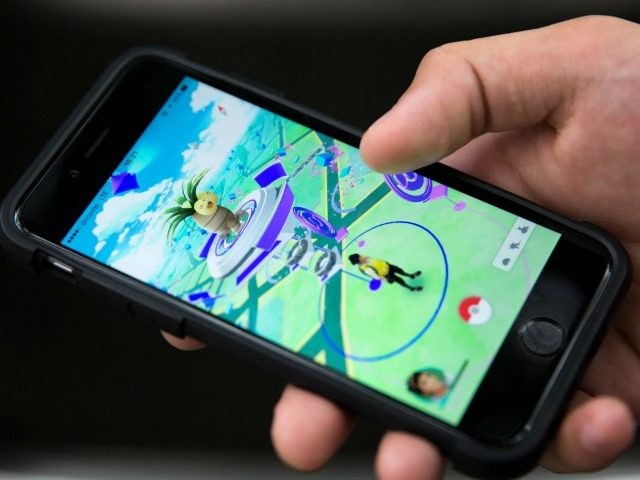Socialist Venezuelan President Nicolás Maduro has used his primetime television show to condemn Pokemon Go, accusing the game of promoting “the culture of violence of capitalism” and linking a jihadist attack in Munich to the Japanese mobile phone game.
Capitalism, Maduro argued, “generates virtual realities tied to weapons, to violence, to death … virtual realities like that new game going around, Pokemon Goo [sic], do you know of this?” he asked the crowd. “Thousands of young people, thousands of people, end up living in a virtual reality.”
“The virtual reality is to kill and to kill. … What can you hope for from a human being who is immersed exclusively in the culture of violence generated by capitalism? Violence,” he asserted. He added that capitalism was injecting “a culture of violence, drugs, and death in Venezuelan youth, in Latin American youth” by directing young people “towards individualism.”
He went on to equate Pokemon Go to “a young 18-year-old, subjected to a culture of violence since his infancy, submitted to the discrimination of a society – that produces a monster,” a reference to Ali David Sonboly, the jihadist responsible for killing nine people at a mall in Munich earlier this month. Police in Germany have not divulged any evidence tying Sonboly to the mobile game Pokemon Go.
Maduro concluded his monologue demanding Venezuelans reject Pokemon Go and “the mechanisms of the culture of death promoted by capitalism.”
Pokemon Go is not yet available in Venezuela, and no plans appear to be in motion to bring the game there, as it is one of the worst peacetime economies in the world and boasts the world’s highest inflation rate.
The game requires players to explore real-world locations to find items valuable in the game for use in catching and training the titular monsters. The monsters are located throughout the real world; different monsters can be found in different locations at different times of day.
Maduro’s statement is the first public condemnation of the game in such aggressively socialist terms in Venezuela, but Venezuelan state media laid the groundwork for this in an article about the game published shortly after its release in early July. “Contact with objective reality weakens in players to a dangerous point,” an article about the game’s debut in Australia reads. “Many fans stop looking up from their smart phones to look both ways when crossing the street.” The article refers to players as “digital zombies.”
Maduro’s focus on Pokemon Go comes as the global community expresses growing concern about his government’s gross mismanagement of the economy, which has brought the OPEC member nation to the brink of famine. In addition to Venezuelans struggling to find food, hospitals have run out of medicine and are requesting patients bring their own supplies. Maduro’s administration is also plagued by an outrageous drug trafficking scandal; his nephews admitted to trying to transport cocaine into the United States on behalf of the Marxist terrorist organization FARC (the Revolutionary Armed Forces of Colombia).
While linking Pokemon Go to Islamic State jihad, Maduro failed to mention that his own government has been repeatedly accused of aiding the Shiite terrorist group Hezbollah. Jihad Ahmad Diyab, a former Guantánamo Bay prisoner who disappeared from Uruguay last month and has expressed sympathies for al-Qaeda since his release, surfaced in Venezuela this week.
Pokemon Go has caused a stir among the world’s most authoritarian societies. In Russia, officials have warned that the game could promote “promiscuity and permissiveness” and has clear ties to “Satan” and the CIA. Moscow officials have been so concerned about the game’s popularity that they have designed a government-approved alternative in which players must “catch” historical Russian figures instead of Pokemon, as a way to inject Russian nationalism into the Japanese children’s game.
In the Middle East, the Pokemon franchise has long been under fatwa for its “Zionist” tendencies. Some symbols used to identify the types of Pokemon – water, fire, psychic, etc. – have been deemed “Zionist” infiltrations. Egypt’s Al Azhar University, the most prestigious academic institution in Islam, has renewed the fatwa and warned that foreign governments may be using the game to spy on players. Saudi Arabia and Turkey’s Religious Agency, the Diyanet, have both issued similar warnings.

COMMENTS
Please let us know if you're having issues with commenting.